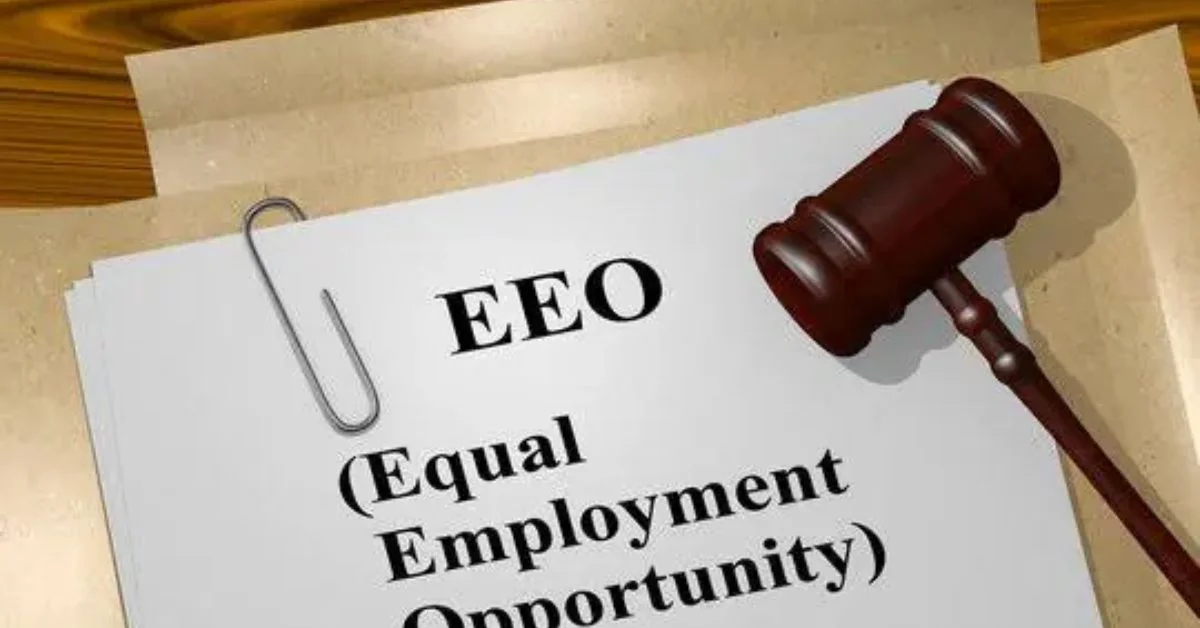The Equal Employment Opportunity Commission (EEOC) is a federal agency tasked with enforcing laws that protect employees from discrimination in the workplace. Established by the Civil Rights Act of 1964, the EEOC plays a crucial role in ensuring that all individuals have equal access to employment opportunities and are treated fairly by their employers.
In this blog post, we will explore the various functions of the EEOC and how it works to safeguard the rights of workers across the United States.
The EEOC’s Mandate
The primary mission of the EEOC is to enforce federal laws that prohibit discrimination against job applicants and employees based on their race, color, religion, sex (including pregnancy, gender identity, and sexual orientation), national origin, age (40 or older), disability, or genetic information.
These laws apply to all aspects of employment, including hiring, firing, promotions, harassment, training, wages, and benefits. The EEOC also works to prevent discrimination before it occurs through outreach, education, and technical assistance programs.
Investigating Discrimination Complaints
One of the core functions of the EEOC is to investigate complaints of discrimination filed by employees or job applicants. When an individual believes they have been discriminated against, they can file a charge with the EEOC.
The agency then investigates the claim to determine whether there is reasonable cause to believe that discrimination has occurred. If the EEOC finds evidence of discrimination, it attempts to resolve the issue through conciliation or, if necessary, file a lawsuit on behalf of the complainant.
For those seeking guidance on navigating the complexities of employment law, resources like an employment law forum can provide valuable insights and support. These forums offer a platform for legal professionals to discuss various aspects of workplace rights and share their experiences and knowledge.
Mediation and Conciliation
In many cases, the EEOC encourages involving parties in a discrimination complaint to resolve their differences through mediation or conciliation. Mediation is a voluntary, informal process in which a neutral third party helps the disputing parties reach a mutually acceptable resolution.
Conciliation is a mandatory process that occurs when the EEOC has determined that discrimination has likely occurred. During conciliation, the EEOC works with the employer to develop a remedy for the discriminatory practices and to prevent future violations.
Litigation
When conciliation efforts fail, the EEOC may file a lawsuit against the employer on behalf of the complainant. The agency has the authority to sue employers in federal court to enforce anti-discrimination laws and to seek relief for victims of discrimination.
This relief may include back pay, reinstatement, compensatory damages, and punitive damages. The EEOC’s litigation efforts not only serve to protect the rights of individual workers but also help to establish legal precedents that can deter future discriminatory practices.
Outreach and Education
In addition to its enforcement activities, the EEOC is committed to preventing discrimination through outreach and education. The agency provides training and technical assistance to employers, employees, and other stakeholders to help them understand their rights and responsibilities under federal anti-discrimination laws.
The EEOC also engages in public education campaigns to raise awareness about workplace discrimination and to promote inclusive and diverse workplaces.
Employers and employees alike can benefit from staying informed about the latest developments in employment law and best practices for fostering a fair and equitable work environment. Engaging with an online community, such as an employment law forum, can provide access to valuable resources, expert advice, and peer support.
The EEOC’s Role in Shaping Employment Law
The EEOC’s actions and decisions have a significant impact on the development and interpretation of employment law in the United States. Through its enforcement efforts and litigation, the agency helps to clarify the scope and application of anti-discrimination laws and to establish important legal precedents.
For example, the EEOC has played a key role in expanding the definition of sex discrimination to include discrimination based on sexual orientation and gender identity.
Moreover, the EEOC’s guidance and regulations provide valuable direction to employers and employees on how to comply with anti-discrimination laws and to promote best practices in the workplace. By staying attuned to employment law updates, individuals can better understand their rights and responsibilities. This allows them to work to create more equitable and inclusive work environments.
Challenges and Criticisms
Despite its important role in enforcing workplace rights, the EEOC has faced challenges and criticisms over the years. Some have argued that the agency’s resources are inadequate to effectively investigate and litigate the large volume of discrimination complaints it receives each year.
Others have criticized the EEOC for being too focused on individual cases rather than systemic discrimination and for not doing enough to address the root causes of workplace inequality.
Future Directions
As the nature of work evolves, the EEOC must address new challenges and emerging forms of discrimination. For instance, the growth of the gig economy has sparked debates over worker classification and access to anti-discrimination protections.
Additionally, the EEOC faces the task of tackling issues such as the use of artificial intelligence in hiring processes and the long-term effects of the COVID-19 pandemic on workplace equity.
Conclusion
The Equal Employment Opportunity Commission plays a vital role in enforcing workplace rights and promoting equal employment opportunities for all individuals. Through its investigation, mediation, litigation, and outreach efforts, the EEOC works to combat discrimination and to create more inclusive and diverse workplaces. While the agency faces ongoing challenges and criticisms, its mission remains as important as ever in ensuring that all workers are treated fairly and with dignity.
As employees and employers navigate the complex landscape of employment law, it is crucial to stay informed and to seek out resources and support when needed. By engaging with communities like an employment law forum, individuals can gain valuable insights, share their experiences, and work together to build a more just and equitable workplace for all.









